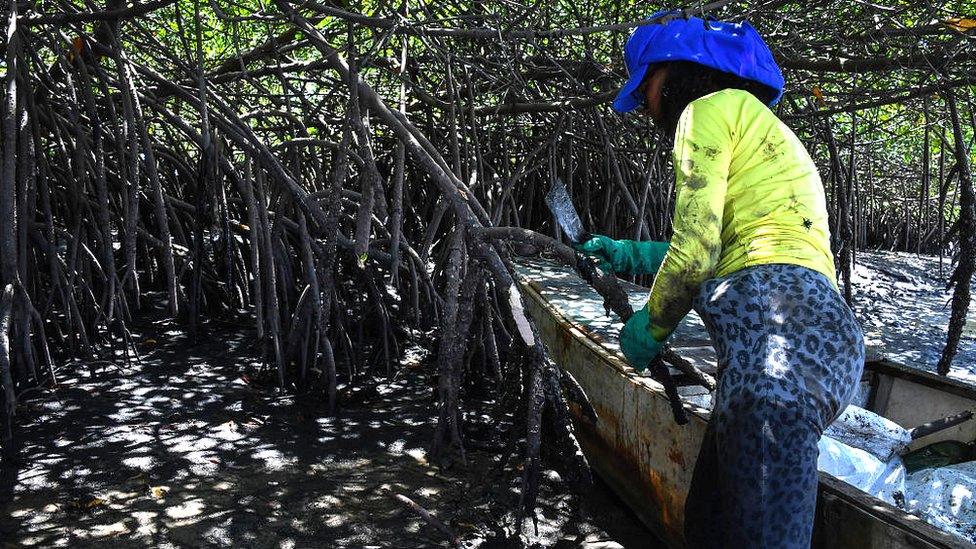Brazil judge stymies plan to revoke mangrove protection
- Published

Brazil's mangrove forests play a key role in combating climate change
A Brazilian judge has suspended plans by the government of President Jair Bolsonaro to revoke rules protecting tropical mangroves and other fragile coastal ecosystems.
The decision, on Monday, had provoked an outcry from environmentalists.
They feared property developers would try to replace large areas of mangrove swamps with new resorts for tourists.
But an appeal court ruled the move could cause "irrevocable" damage to the environment.
Federal Judge Maria Carvalho, sitting in Rio de Janeiro, granted an injunction against the government's plan "given the obvious risk of irreparable damages to the environment".
The group of lawyers who brought the injunction argued that "the repeal of such rules violates the constitutional right to an ecologically balanced environment".
Mangroves are an important protection against climate change and environmental groups had called the government's move a "crime".
Mangrove forest absorbs nearly the same amount of carbon dioxide as an equivalent area of Amazon rainforest.
The decision removed so-called "permanent protection zones" created in 2002 to preserve Brazil's many tropical mangroves and the sand-dune scrublands. It was taken by the National Environmental Council (Conama), led by controversial Environment Minister Ricardo Salles.
How is the rainforest helping to limit global warming?
President Bolsonaro, a right-wing climate-change sceptic, took power in January 2019. He has since presided over environmental crises including the escalation of deforestation and wildfires in the Amazon rainforest.
It is not the first time Mr Salles has been involved in controversy since taking the job.
In a leaked recording of an April cabinet meeting with the president, Mr Salles said the coronavirus pandemic was a chance to roll back environmental regulations "now that the media's only talking about Covid".
- Published8 May 2020
- Published27 September 2020
- Published13 August 2019